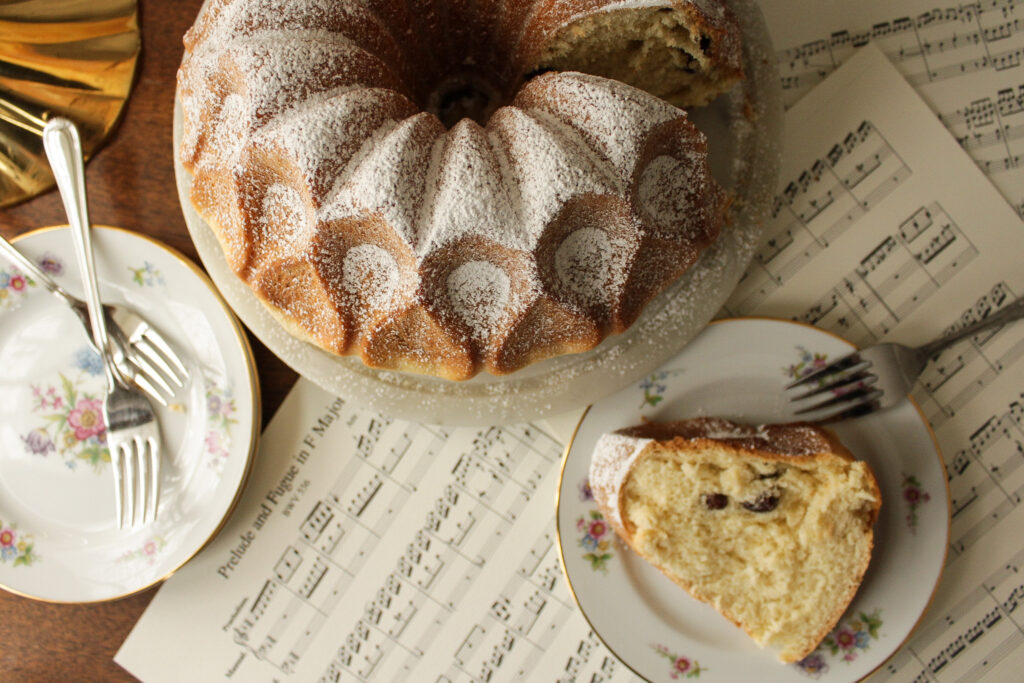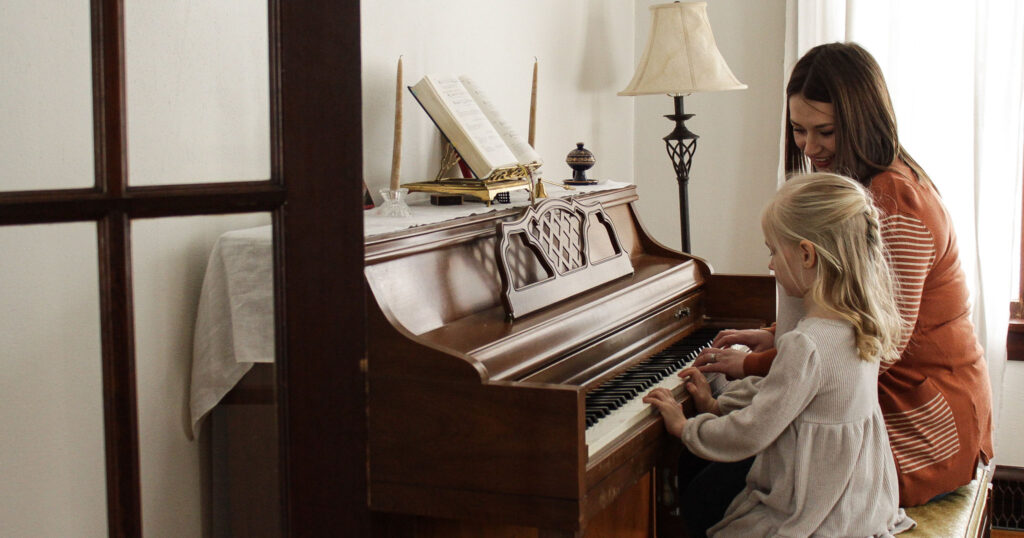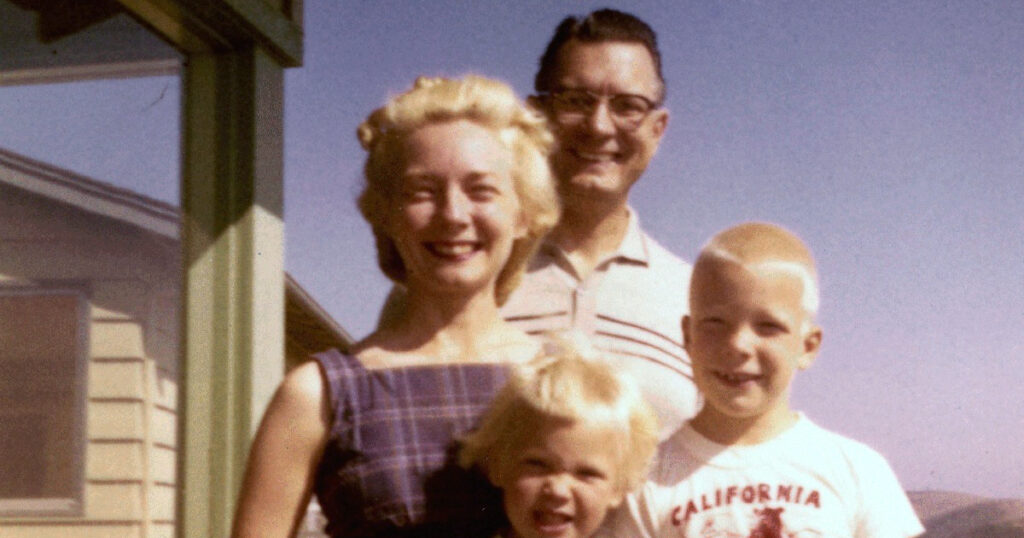This is the latest installment of “Life in the Church Year,” a series by Dr. Kristen Einertson and Tessa Muench of All the Household. This series will provide guidance for living out the seasons of the Church Year at home with your families. Find month-by-month lists of Lutheran feasts, festivals and commemorations here.
When attempting to live out the Church Year at home, figuring out how to celebrate the long season of Trinity, which includes the summer months of June and July, can be perplexing. This season, which stretches forth as a seemingly endless “green” pasture from Pentecost through the end of the Church Year, is a time meant for slowing down and for learning more about our Lord’s work.
It can be helpful to focus on a few landmarks. One in June is the Nativity of St. John the Baptist, and one in July is the commemoration of Johann Sebastian Bach. Both of these beloved saints serve as shining examples of how Christians reflect the light of Christ.
First, it is worth noting why we celebrate saints and their days. We set these days aside to remember how our Lord has worked through His people — both the saints of “old” (those in the Bible) and the “new” saints (brothers and sisters in Christ of more recent times). By looking at these Christian examples, we can be strengthened in our own faith. And we can reflect upon the significance of those who have shaped the church and our theology. Of course, we never pray to the saints, nor should the saints’ days overshadow Christ. Yet we shouldn’t disregard them either, since they contribute to the great richness of the Church Year.
On June 24, the Feast of the Nativity of St. John the Baptist, we remember one of the most famous saints from all of Scripture, a man whose entire existence pointed toward Jesus. One of the oldest feasts in the Church Year, the Nativity of St. John the Baptist has been celebrated since as early as the fourth century. To mark the day, Christians have traditionally remembered the saint with “St. John’s fires,” building a bonfire on the eve of the saint’s day. The fire represents how John the Baptist’s life and teaching both shed light on the Word of God and revealed who the true Light was: Jesus Christ.

On July 28, Lutherans commemorate J.S. Bach, whom many consider the greatest composer of all time. This German cantor and pious believer devoted most of his musical career to serving the Lutheran church, expressing the wealth of Lutheran theology through his music and composing a prolific oeuvre based on the church’s weekly Gospel readings and feast days. There are many ways to mark Bach’s day, including listening to some of his compositions. However, you can also follow the example of Christians before us, who have commemorated the saints by making recipes from their native lands, remembering the places where God worked through them to serve His church. In this spirit, we offer up a traditional yeasted German Kugelhopf cake recipe, baked in a special pan and meant for celebratory occasions!
J.S. Bach Kugelhopf
Ingredients:
½ cup raisins 1 cup warm milk ¼ cup sugar 2 tsp. instant yeast 1 tsp. salt 1 tsp. vanilla 6 Tbsp. butter, melted 2 medium eggs 3 ½–4 cups all-purpose flour
Instructions:
- Pour boiling water over the raisins and set aside.
- Combine the remaining ingredients in a stand mixer and knead using the dough hook attachment for 10 minutes.
- Lightly oil a bowl and your hands, then remove the dough from the mixer and form into a ball. Place in the greased bowl and allow to rise until doubled.
- Once doubled, gently flatten out the dough onto a work surface. Drain the raisins and place them in the dough. Roll the dough up into a ball, then make a hole in the middle of it to form a bagel shape.
- Transfer the dough best-side down into a well-greased bundt or Kugelhopf pan to rise once more.
- Once doubled, bake at 350ºF for 45 minutes or until it reaches an internal temperature of 200ºF.
Cover image: Tessa Muench






June 29 is also the feast of the apostles.
Not sure how we celebrate it other than red.
Is there anything special you know of?
“One person esteems one day as better than another, while another esteems all days alike. Each one should be fully convinced in his own mind” (Romans 14:5 ESV).
“For the kingdom of God is not a matter of eating and drinking but of righteousness and peace and joy in the Holy Spirit” (Romans 14:17 ESV).
Yes…
Saint Paul indeed said “One person esteems one day as better than another, while another esteems all days alike. Each one should be fully convinced in his own mind” but by that I doubt he meant disregarding all days alike as he continued in verse 6 “The one who observes the day, observes it in honor of the Lord. The one who eats, eats in honor of the Lord, since he gives thanks to God, while the one who abstains, abstains in honor of the Lord and gives thanks to God.”
I suggest that if we “esteems all days alike,” and “abstain in honor of the Lord,” then every day is a celebration to the Lord and that time must be spent in prayer and scripture. If that is what you do then that is fantastic, but if not then how are you honoring God “all days alike?” Is Sunday morning alike to Thursday evening to you? According to the church fathers Saint James saw all days alike and his forehead was said to be as calloused as “the knee of a camel” from his daily prayers with his forehead against the ground. Saint Crysostom lived in a cave fasting and pouring over scripture for years because all days were alike. What did you do last night?
If you aren’t honoring God every day alike then perhaps you should consider adding the feasts and celebrating in honor of the Lord. Raise your children in the habit of God being first every day and build traditions of Godliness. As Saint Augustine said repetition becomes routine and that becomes custom. Build a custom of godliness in your family. Feasts are an easy way to do that.
If we compare our culture today with how things were when we celebrated these feast (and listened to Saint Paul on women’s head coverings and the roll of each person in the family) how are we doing today? Would you say we are a more godly society or a less godly society?
Perhaps we need to recognize that Lutheranism was never about changing forward but changing back as we worship unchanging God and read his unchanging Word with an eye on unchanging worship.